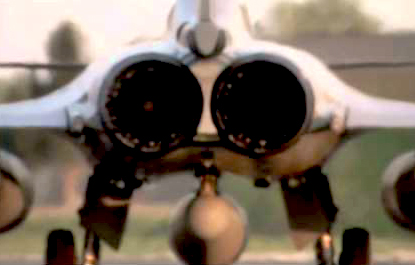
New Delhi, September 21: India will spend over Rs 2 lakh crore (upwards of $35 billion) over the next 10 years to boost its air combat power to counter any threats to its territorial integrity as well as protect its expanding geopolitical interests.
While IAF's acquisition programmes have been well-documented — ranging from 126 medium multi-role combat aircraft (MMRCA) to over 200 futuristic 5th generation stealth fighters — the deputy chief of air staff Air Marshal R K Sharma put a figure to it on Thursday.
Speaking at a seminar on "Energizing the Aerospace Industry in India" here, Air Marshal Sharma said IAF plans to spend Rs 2 lakh crore on capital procurements during the 12th (2012-2017) and 13th (2017-2022) Plans while underlining the "huge potential" for the private sector to work in the defence sector.
Incidentally, this comes after Navy's ongoing warship, submarine and maritime aircraft acquisition programmes as well as proposed projects over the next 15 years were pegged at over Rs 3 lakh crore, as was first reported by TOI earlier.
The IAF figure may also sound "staggering" to some, but it's "a question of simple mathematics". With the norm being a 12%-15% hike in IAF's capital outlay every year, it already stands at Rs 30,514 crore for this fiscal.
Taking annual budgets over the two five-year Plan periods into account, and subtracting the amounts for capital works, the Rs 2 lakh crore figure seems conservative. "Moreover, it's for not just new acquisitions but also committed liabilities or installments for deals already inked," said a senior officer.
With both China and Pakistan bolstering their air forces, IAF certainly needs well-planned systematic inductions of fighters and helicopters, mid-air refuellers and transport planes, spy and combat drones, surface-to-air missiles and advanced radars.
Despite airpower being critical in winning modern wars, IAF is down to just 33-34 fighter squadrons (each has 12 to 18 jets) due to progressive phasing out of virtually obsolete MiGs. It will not be able to achieve its "sanctioned strength" of 39.5 squadrons even by 2017 despite needing at least 44 squadrons for "robust dissuasive deterrence" against China and Pakistan.
IAF is heavily banking upon the almost $20 billion MMRCA project to acquire 126 French Rafale fighters to plug gaps, apart from the ongoing phased induction of 270 Sukhoi-30MKIs contracted from Russia for around $12 billion.
With final commercial negotiations underway, the MMRCA contract is likely to be inked by mid-2013. The first 18 jets will come in "fly-away condition" from France from 2016 onwards, while the rest 108 will subsequently be manufactured under licence by Hindustan Aeronautics Limited over six years.
For the long-term, IAF is looking to induct over 200 of the 5th Gen swing-role fighters from 2022 onwards. India and Russia will ink the $11 billion full design R&D contract for them within six months, with each chipping in with $5.5 billion. India will eventually spend around $35 billion on this futuristic fighter project over the next 15-20 years, with each jet to be subsequently produced costing over $100 million.






Comments
Add new comment